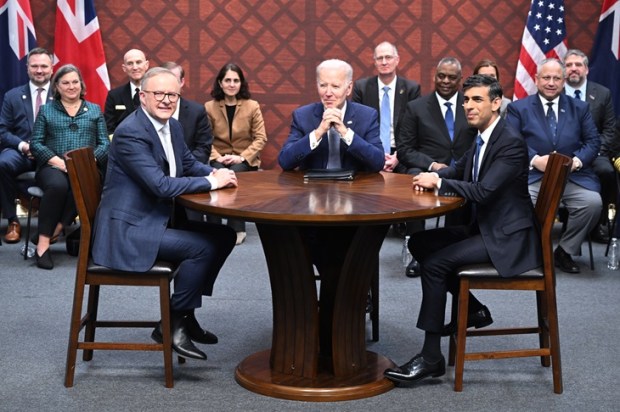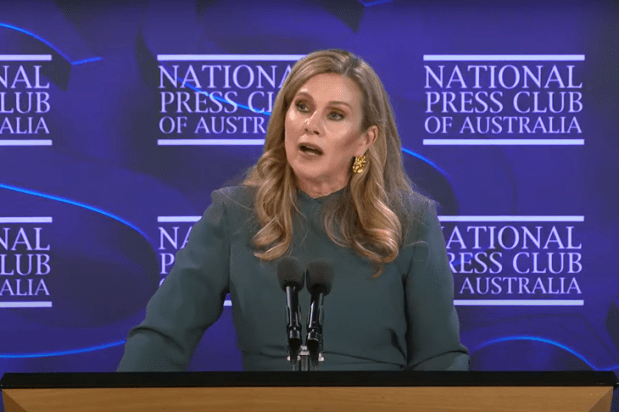In Australia’s latest National Defence Statement, it says that:
‘Australia faces the most complex and challenging strategic environment since the second world war.’
With recent major wars in Ukraine and the Middle East, and the ongoing threat to Taiwan from China, it is hard to disagree.
Yet Australia’s defence capabilities are currently at the weakest they have been since the second world war. Vital defence programs have been cut, no effort is being made to stockpile munitions or raw materials, and our defence force personnel are shrinking in numbers.
No Australian wants to wage a war in our region, but wishing for peace won’t make it so. War is prevented by deterring aggressors, yet almost all aspects of Australian defence policy signals our vulnerability and acts as an incentive to aggression in our region.
Institute of Public Affairs’ research has highlighted how vital the Northern Territory is to our national defence. Chief Minister Lia Finocchiaro’s recent call for the Norther Territory to get a greater share of defence investment is certainly correct. Our national leaders must take the defence of the north seriously. However, it is here that the disconnect between their talk and action has been most stark.
Our defence bases need to be hardened against attack, particularly those across northern Australia. This should involve reversing the federal government’s recent decision to cancel the purchase of an air-defence missile system, as the most likely form of attack on our key bases would be from long-range missiles and drones.
Added to this, key islands off Australia’s northern coast like Cocos, Christmas, Ashmore, and Cartier islands are left completely undefended.
Australia, as an island nation, does need to bolster its naval assets. Any major war in our region will almost certainly involve a substantial naval component. However, it is absurd to spend billions of dollars acquiring eight Aukus nuclear submarines, while leaving crucial Australian offshore islands completely undefended with no plan to rectify this.
China certainly understands the importance of small island bases, and it has been steadily militarising island atolls it controls in the South China Sea. It should never be forgotten that during the war in the Pacific, air and naval bases were used to project power and key islands like Guadalcanal, Guam, Iwo Jima, and Okinawa were the scene of bitter battles.
Indeed, much of the north of Australia, containing some of the richest mineral wealth in the world, is completely undefended.
IPA research shows concrete measures can be quickly taken to turn this situation around in the next term of government. For example, Australia currently accepts a rotation of 2,500 US Marines into the Northern Territory each year. Australia should build the necessary facilities and negotiate with our chief ally to increase this force to a full Marine Expeditionary Brigade of about 16,000.
In addition, while Australia has some of the most sophisticated commercial ports and airfields in the world, those in the north are not adapted for dual military and commercial use and are not defended. Absurdly, if Australian or allied naval vessels were to operate off the north coast and needed to refuel, they would have to sail right past state-of-the-art refuelling facilities.
And when it comes to fuel, Australia is blessed with rich natural resources yet lacks liquid fuel reserves. In a protracted conflict, Australia will be left with no choice but to feed itself and maintain a wartime economy. Yet we keep only the most marginal of reserves, and these would be exhausted quickly if there was a disruption to global trade. This must change, and the focus should be on turning existing facilities that support our mining and resource sectors in Australia’s north into military and civilian dual-use capable facilities.
Of course, all of this will cost money, which is why the IPA has called for Australia, at a minimum to increase its defence spending to 3 per cent of GDP. Our current defence budget is dangerously inadequate for an island nation dealing with complex challenges in its region.
Such changes, along with other reforms to procurement, our domestic defence industry, and addressing the recruitment crisis, could rapidly turn around Australia’s defence posture from abject weakness to one of preparedness and resilience. And just as importantly, such changes would signal to potential aggressors that we are taking our defence seriously. The goal should always be to make sure that defence planners in Beijing wake up every morning and think – not today.
John Storey is the Director of Law and Policy at the Institute of Public Affairs and author of ‘Big Wars – Why do they happen and when will the next one be?’

























